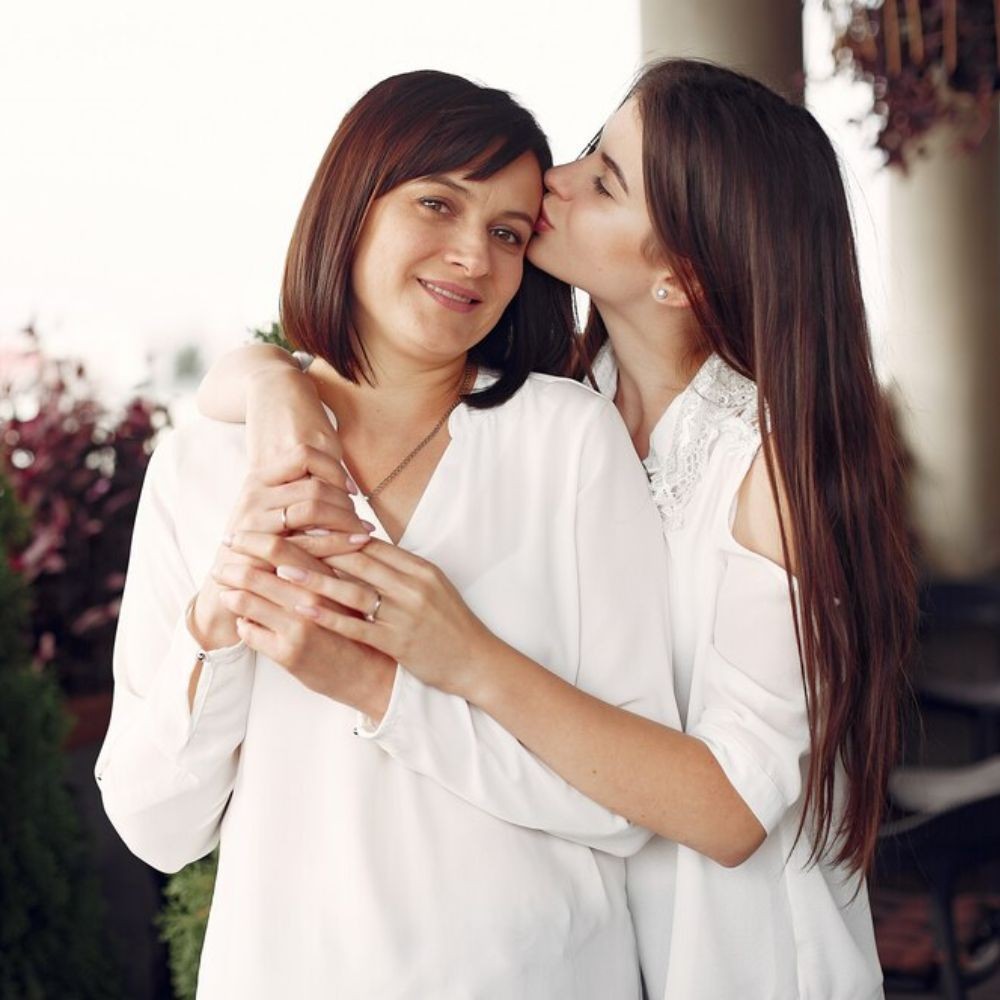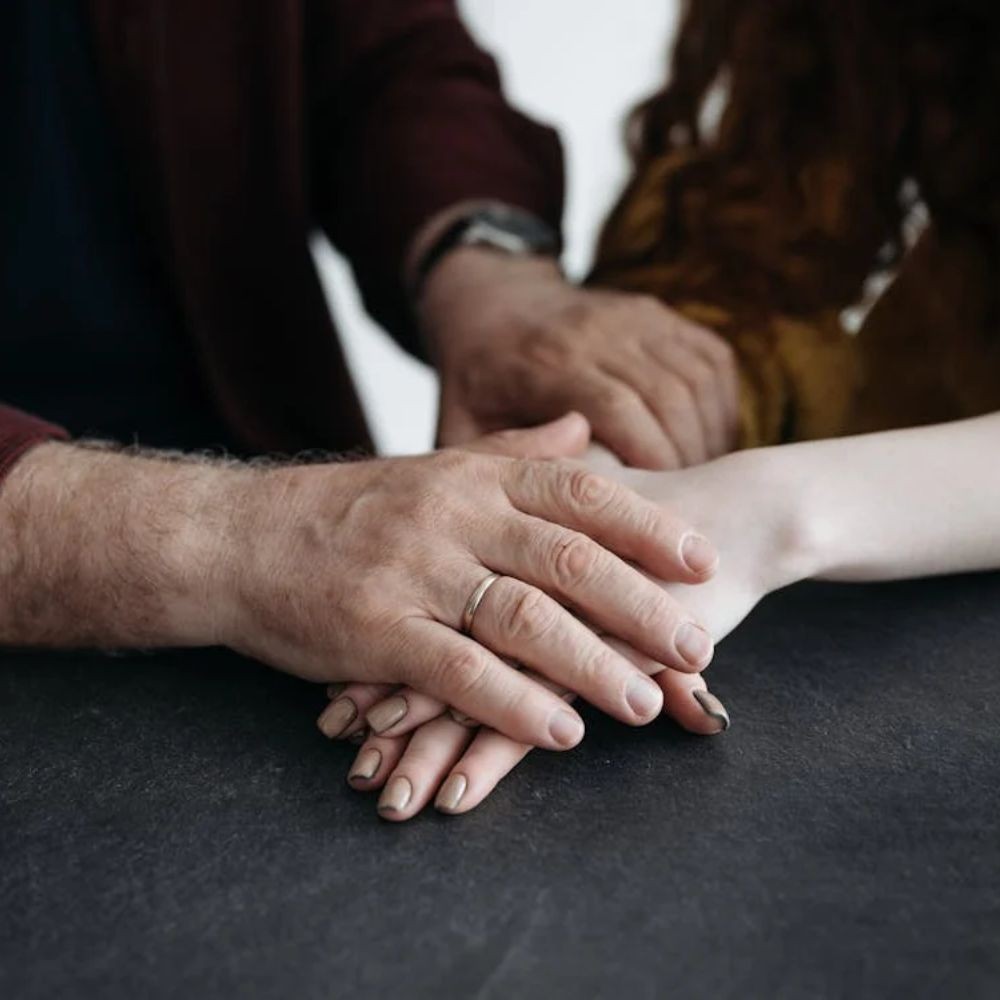17 Signs of a Healthy Relationship (And Potential Red Flags)
When looking for signs of a healthy relationship, find the absolute best advice here to essential traits and insights to ensure your relationship thrives.

Entering into a relationship is a journey filled with excitement and uncertainty. As we navigate from a casual “situationship” to a more committed bond, it's natural to seek signs that indicate a healthy foundation. Looking for the right signs of a healthy relationship can help you sift out the bad eggs from the basket or make you feel grateful for what you have.
Many people mistakenly believe that avoiding red flags means settling for a dull or unexciting relationship. They fear missing out on genuine love, mistaking healthy relationship traits for boredom. In reality, recognizing and addressing red flags early on can prevent heartache and disappointment later.
True love thrives when built on a foundation of mutual respect and trust, not on ignoring warning signs. It’s about finding a partner who values your well-being and growth, creating a relationship that enriches your life rather than stifling it.
Recognizing these green flags can help you avoid toxicity in the future, and embrace a partnership that feels enriching and nurturing. It's about feeling understood and valued, where conflicts are resolved maturely, and both individuals feel empowered to be their authentic selves.
Our advice will guide you in maintaining a strong love and healthy behavior in any situation. Keep reading to learn about the early signs of a healthy relationship.
What Is a Healthy Relationship?

A healthy relationship is fundamentally built upon several key pillars that ensure a strong and supportive bond:
1. Empathy And Kindness: Being able to understand and resonate with each other's feelings fosters a compassionate connection.
2. Reliability And Commitment: Consistently showing up and honoring each other’s commitments fosters trust and security.
3. Mutual Respect for Boundaries: Respecting each other's space and autonomy lays the groundwork for a respectful partnership.
4. Teamwork: Working together towards common goals and solving challenges collaboratively strengthens the relationship.
5. Shared Values And Goals: Alignment in core beliefs and aspirations provides a solid foundation for shared experiences and future plans.
The needs and priorities of each evolve based on personal backgrounds and experiences. For instance, someone who values community service may seek a partner who shares a passion for volunteering.
Similarly, compatibility in family values can be crucial; someone who prioritizes family gatherings might find it challenging to connect deeply with someone who doesn't prioritize familial relationships.
Read More: 96 Toxic Relationship Quotes That Illuminate the Dark Side
17 Signs You Have a Healthy Relationship

1. Trust And Strong Foundation:
In a healthy relationship, trust forms the bedrock. You feel secure in your partner's loyalty and integrity, never doubting their actions or whereabouts. There's no urge to peek at their phone or interrogate them because you have complete faith in them.
Occasionally, discussing personal goals and checking in on each other's well-being strengthens this trust. Unlike relationships marked by abusive behavior or physical violence, you both practice healthy coping mechanisms and anger control. This mutual respect and trust create a supportive environment where both partners thrive emotionally and feel valued in their partnership.

2. Open Communication And Ready for Conversation:
You both feel comfortable expressing your thoughts and feelings without fear of judgment or retaliation. Even when uncomfortable topics can be spoken about with sincerity and seriousness, then you must know that the person is here for you and wants to make things work.
When something is bothering you, you can discuss it openly, and your partner listens and responds thoughtfully.
3. Healthy Boundaries:
Both partners value each other's opinions, feelings, and boundaries. You respect each other’s need for personal space and support each other's goals and interests.
4. Unwavering Support:
You support each other through good times and bad, providing emotional, moral, and practical help when needed. When you're stressed about work, your partner helps out with household chores to lighten your load.

5. Healthy Conflict Resolution:
When you and your partner have disagreements, you handle them respectfully and constructively. Instead of yelling or name-calling, you both calmly discuss the issue and look for a compromise. Taking a communication class can be really helpful for improving communication during conflict and addressing privacy needs.
Unlike dramatic couples who often escalate arguments, you focus on maintaining a healthy dialogue. This approach not only strengthens your relationship but also fosters mutual respect and understanding. By prioritizing effective communication, you're ensuring that both of your needs are met and that conflicts are resolved in a positive manner.

6. Shared Values And Goals:
You both have similar values and long-term goals, creating a sense of unity and purpose. You both agree on the importance of family and plan together for future family activities or responsibilities.
7. Independence:
While you enjoy spending time together, you also have your interests and friends. You both encourage each other to pursue individual hobbies and spend time with your respective friends.

8. Outpour of Affection:
Physical and emotional affection is expressed regularly, reinforcing your bond. You hold hands, hug, and say “I love you” frequently, making each other feel loved and appreciated. This doesn’t have to be completely physical, even sharing kind words of gratitude and appreciation can make one’s partner feel more loved and cared for in a healthy relationship.
9. Mutual Equality:

In a healthy relationship, decisions and responsibilities are shared fairly, with neither partner dominating the relationship. You both contribute equally to household duties and make major decisions together, fostering a sense of partnership and mutual respect.
In contrast, an abusive relationship often involves one partner exerting control and dominance, while a codependent relationship can result in unhealthy reliance on one another. Assertive communication is crucial for maintaining balance and addressing issues effectively.
A relationship therapist can help navigate various dynamics, whether dealing with actions in relationships that foster growth or addressing attention-seeking behavior that disrupts harmony.
10. Fun And Enjoyment:
You genuinely enjoy each other's company and have fun together. You often laugh together and plan activities that you both enjoy, like movie nights or weekend trips. Prioritizing date nights, surprising each other with small gestures, and keeping physical intimacy a priority is a great sign that he/she wants you to be happy and satisfied in the relationship. Consistent effort and mutual appreciation ensure the relationship remains vibrant and engaging.

11. Forgiveness:
You can forgive each other for mistakes and move on without holding grudges. If one of you forgets an important date, you talk about it, understand the reasons, and let go of any resentment. This ability to forgive and communicate openly is a clear sign of a healthy relationship, where both partners prioritize understanding and growth over dwelling on mistakes.
12. Shared Decision Making:
In intimate relationships, important decisions are made together, respecting each other's input and perspectives. When deciding on a major purchase, you both discuss the pros and cons, making the decision collaboratively. This contrasts with a one-sided relationship, where one partner dominates.
Healthy communication and personal boundaries are essential, as poor communication can lead to issues. Establishing personal goals and practicing healthy behavior, like anger control, enhances the quality of life. Couples therapy can be beneficial from time to time to address conflicts and ensure the relationship thrives without abusive behavior.
Read More: 20 Green Flags in a Relationship: Healthy Signs for Lasting Love
13. Interpersonal Security:
You feel safe and secure in the relationship, both emotionally and physically. You know your partner will always be there for you, providing a sense of stability and reassurance.
14. Laughter And Joy:
You bring happiness into each other’s lives, often making each other laugh and smile. Inside jokes and playful teasing keep the atmosphere light and joyful between you.

15. Commitment:
Both partners are committed to the relationship and work together to maintain it. Even during tough times, you both stay committed to working through issues and strengthening your bond.
16. Appreciation:
You regularly show appreciation for each other, acknowledging the little things. You thank each other for small acts of kindness, like making coffee in the morning or picking up groceries.
17. Personal Growth:
The relationship encourages both partners to grow and become better individuals. You motivate each other to pursue new opportunities, such as career advancements or personal development courses.
What Are Some Potential Red Flags in a Relationship?

In understanding what makes a good relationship and what is healthy for a relationship, it's crucial to recognize potential red flags that can undermine even the strongest bonds.
One significant deal-breaker is the lack of trust. Open and honest communication is a key trait of a healthy relationship, and without it, misunderstandings and resentment can build up over time.
Read More: 21 Obvious Signs of a Toxic Boyfriend That Raise Red Flags
Not having mutual respect can really harm a relationship because respect is so essential for a healthy one. Disrespectful behavior, whether intentional or not, can make someone feel worthless and hurt.
Setting healthy boundaries is key for healthier relationships and happy couples. Keep an eye out for warning signs, and don’t shy away from difficult conversations. A relationship expert can help guide you to greater relationship satisfaction.
Additionally, incompatible life goals and values can create a significant rift. While shared values are part of healthy relationship traits, differing aspirations can cause partners to drift apart.
Furthermore, emotional or physical abuse is an absolutered flag. For a relationship to be healthy, it must be free of fear and harm, and abuse violates the very essence of what is healthy for a relationship.
To maintain a healthy relationship, both partners must continuously work on these traits, ensuring that their bond remains strong and resilient. Recognizing and addressing these deal breakers early on can help preserve the integrity and health of the relationship, illustrating what a healthy relationship truly looks like.
So to sum it up, signs of a healthy relationship can be characterized by trust, respect, and mutual support. By fostering open communication, resolving conflicts constructively, and maintaining individual independence, partners can build a strong and lasting bond. Affection, equality, and shared goals further enhance the connection, creating a partnership where both individuals feel valued, secure, and loved. Regular appreciation and a commitment to personal growth ensure that the relationship remains dynamic and fulfilling for both partners.





 JOIN OUR WHATSAPP CHANNEL
JOIN OUR WHATSAPP CHANNEL













































